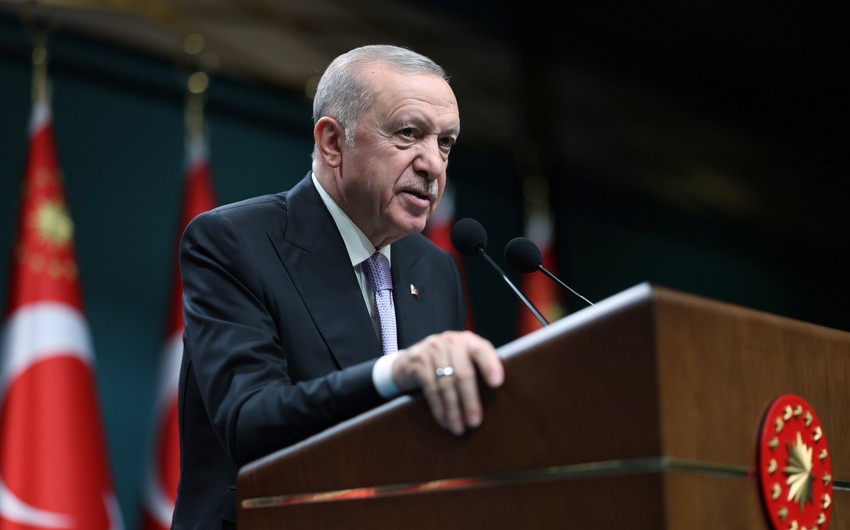Liu Jin, a 27-year-old teacher in central China, is the kind of young nationalist that President Xi Jinping can typically count on. Mr. Liu shares propaganda photos of the president in battle fatigues online and reverently calls him “Uncle Xi.”
But Mr. Liu was dismayed this week when he heard that the ruling Communist Party was changing the Chinese Constitution, allowing Mr. Xi to stay in power indefinitely.
“I disagree,” Mr. Liu wrote on Weibo, a microblogging site, listing examples of power-hungry emperors and autocrats. Censors immediately deleted the post.
During his more than five years in power, Mr. Xi has cultivated an image as a man of the people — a centered, sympathetic leader who lines up with workers to buy pork buns while also guiding the world’s most populous nation to growth and global influence.
But the move to abolish term limits, announced on Sunday, has resurrected deeper fears in Chinese society, where memories remain of the personality cult of China’s founding father, Mao Zedong, and the fevered emotions and chaos that it conjured.
Anxious to suppress criticism, and maintain an appearance of mass support, the Communist Party’s censors have scoured the internet and social media for content deemed subversive. The sanitizing has included many images of Winnie the Pooh — Mr. Xi is sometimes likened to the cartoon bear — and search terms like “my emperor,” “lifelong” and “shameless.”
For a short time, even the English letter “N” was censored, according to Victor Mair, a University of Pennsylvania professor, apparently to pre-empt social scientists from expressing dissent mathematically: N > 2, with “N” being the number of Mr. Xi’s terms in office.
In their coverage, China’s state-run media have played down the move, as if in hopes that most Chinese simply will not notice, or care. When news accounts mention the change, they argue that term limits should be eliminated to ensure leadership continuity at a time when China has ambitions to challenge American dominance and reclaim its rightful place on the global stage. “China cannot stop and take a break,” the nationalistic Global Times warned. “The country must seize the day, seize the hour.”
Despite the blanket of censorship, and the fear that many expressed in stating their actual opinions in public, some cracks have appeared in the facade of public unity behind China’s strongman.
Retirees who endured the trauma of Mao’s Cultural Revolution are warning of a return to dictatorship. University students are posting quotes from George Washington’s farewell address online. Business executives, concerned about the Communist Party’s growing grip on private enterprises, are hastening plans to relocate overseas.
Li Datong, a former journalist and critic of the government, has circulated an open letter calling on the Communist Party to block Mr. Xi’s plan or risk “once again planting seeds of chaos in China and causing untold damage.” He said that Mr. Xi’s power grab would overturn the very stable and predictable system for peaceful transitions of power set up decades ago after the chaos of Mao and succession struggles under Deng Xiaoping.
“It’s going to break the chains placed on the system,” Mr. Li said in an interview. “It’s going to be very dangerous.”
While some have likened Mr. Xi to Mao, others reached further into Chinese history, comparing Mr. Xi to Yuan Shikai, an early 20th-century warlord who briefly restored China’s monarchy with himself as emperor.
For all the discontent, analysts said it was unlikely anything would block Mr. Xi’s attempts to extend his rule.
For one, much of the frustration over the term-limits plan is limited to the urban elite. Mr. Xi remains immensely popular among farmers and blue-collar workers, as well as a new generation of young nationalists, who admire what they view as his steely drive and see him as the architect of China’s ascent in the 21st century.
“It’s not a bad thing to remove term limits, so long as the leader has strong abilities,” said one such supporter, Mou Yuxiu, 19, a college freshman in the southwestern province of Sichuan. “President Xi is such a person.”
For another, Mr. Xi already has an iron grip on Chinese society. A sweeping anti-corruption campaign has ensnared tens of thousands of officials, and imposed discipline on the Communist Party and other powerful institutions like the People’s Liberation Army, China’s military. There have also been conspicuously public arrests of lawyers and dissidents, including Gui Minhai, a Hong Kong-based publisher who has been in custody for more than two years, apparently for publishing books critical of Mr. Xi and China.
While the plan to abolish term limits may be one of the most important political decisions in decades, many citizens are simply unaware of it. The decision has been buried inside newspapers and mentioned only in passing on television news shows.
“I didn’t pay much attention to the change,” said Peng Man, a worker from the countryside now living in Beijing. “It’s a good thing if they are good officials. It’s bad thing, if they are not good officials.”
But for others, Mr. Xi’s maneuvering has rekindled memories of the Cultural Revolution, the decade-long upheaval instigated by Mao that fractured Chinese society and left more than one million dead.
Many see echoes of Mao’s obsession with power in Mr. Xi, who has placed the ideal of absolute loyalty to the party at the center of everyday life. Like Mao, Mr. Xi has also filled China’s society with political slogans, and used propaganda to present himself as the leader needed to guide China to its destiny.
Critics argue that by putting such a personal stamp on power, and eliminating the previous collective leadership model, Mr. Xi is setting the stage for a return to the excesses of personal loyalty and fanaticism that nearly tore China apart during Mao’s time.
“Many people inside and outside the system went through the Mao era and their anxiety is intensified,” said Zhang Lifan, a historian in Beijing, whose father, a government official, was persecuted during the Cultural Revolution.
Others harbor nostalgia for the politics of the Cultural Revolution, which they see as a time of decisiveness and ideological purity. They dismiss criticism of Mr. Xi’s strongman tendencies, saying centralized power is a sign of prosperity and stability.
“Xi Jinping can explore a new mass democracy in his own way, without the chaos, disorder and blood, and without the darkness and negatives,” said Zhang Hongliang, a Maoist commentator. “Centralized power is just a tool. What matters is who holds it.”
Mr. Xi has presented himself as a singular figure who has what it takes to eliminate corruption, reduce income inequality and extend China’s influence in the world.
“Chinese people are addicts to the veneer of strong purposeful stability, and Xi exemplifies that,” said Kerry Brown, a China scholar at King’s College, London.
While gauging public opinion in an authoritarian country is difficult, surveys suggest Mr. Xi has an approval rating of more than 80 percent. In interviews, many praise him for maintaining robust economic growth at a time when more advanced nations have faltered, and challenging America’s dominance in areas like the South China Sea.
But even many of Mr. Xi’s admirers have been taken aback by his bid for indefinite rule. Some worry that he might upset the peaceful transitions of power that have brought stability.
“More mistakes can be made if the term is longer,” said Shi Jin, 45, a stay-at-home mother in Beijing.
Others are now looking to leave China, and immigration agencies are seizing the moment to advertise their services.
Wu Dan, a graphic designer, said she had received four calls from immigration agents this week. She said she had decided against it, even though she disagreed with the plan to abolish term limits.
“As a patriotic young person, I hope our country can have fewer people who are starving, our government can think for the people and our media can speak for the people,” Ms. Wu said. “I still hope our government will make the right decision by reflecting on history.”










